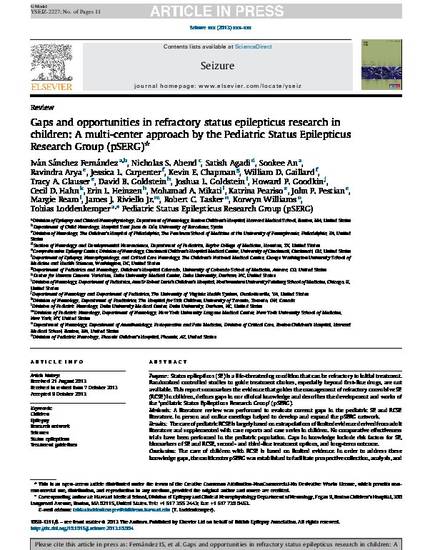
- Status Epilepticus--therapy
PURPOSE:
Status epilepticus (SE) is a life-threatening condition that can be refractory to initial treatment. Randomized controlled studies to guide treatment choices, especially beyond first-line drugs, are not available. This report summarizes the evidence that guides the management of refractory convulsive SE (RCSE) in children, defines gaps in our clinical knowledge and describes the development and works of the 'pediatric Status Epilepticus Research Group' (pSERG). METHODS:
A literature review was performed to evaluate current gaps in the pediatric SE and RCSE literature. In person and online meetings helped to develop and expand the pSERG network. RESULTS:
The care of pediatric RCSE is largely based on extrapolations of limited evidence derived from adult literature and supplemented with case reports and case series in children. No comparative effectiveness trials have been performed in the pediatric population. Gaps in knowledge include risk factors for SE, biomarkers of SE and RCSE, second- and third-line treatment options, and long-term outcome. CONCLUSION:
The care of children with RCSE is based on limited evidence. In order to address these knowledge gaps, the multicenter pSERG was established to facilitate prospective collection, analysis, and sharing of de-identified data and biological specimens from children with RCSE. These data will allow identification of treatment strategies associated with better outcomes and delineate evidence-based interventions to improve the care of children with SE.
Available at: http://works.bepress.com/ivan_fernandez/10/
Reproduced with permission of Seizure.